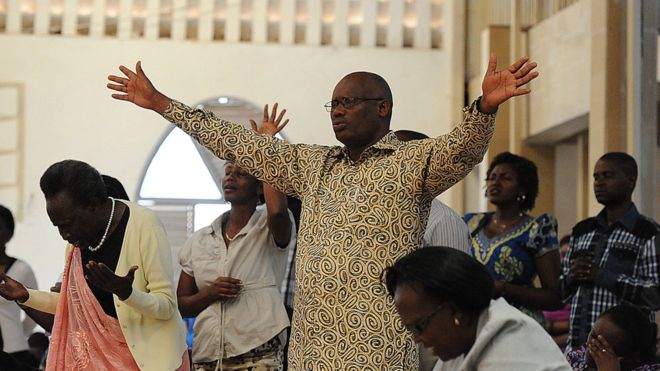Churches - and Mosques - have been a major source of noise pollution for a really long time, many of them at decibels so high they're actually considered dangerous. Worship shouldn't be painful and headache inducing, yet it often is. For people who still have good hearing and want to protect it, going to places like that can be frustrating.
Well, Rwanda is not just rolling over and taking it anymore. On February 28, the Rwandan government shut down about 700 churches and one mosque for failing to comply with building regulations and for noise pollution. Most of the churches are small Pentecostal churches.
The reported crackdown is being carried out by the local authorities with the support of the Rwanda Governance Board, according to the New Times. According to the proposed new law, all preachers in Rwanda must have theological training before opening a church. I can get behind that kind of law.
You see, many small churches are often run by charismatic preachers claiming to be able to perform miracles and this 'trend' has grown rapidly in many parts of Africa in recent years. Some of these churches grow to become massive - attracting thousands of worshippers each Sunday - and then constituting a nuisance because they will literally only use public address systems set to the highest volume to attract worshippers. Justus Kangwagye, a government official, told the BBC that the government simply required the churches to meet "modest standards". Modest standards are not a bad idea, standards are good.
Well, Rwanda is not just rolling over and taking it anymore. On February 28, the Rwandan government shut down about 700 churches and one mosque for failing to comply with building regulations and for noise pollution. Most of the churches are small Pentecostal churches.
The reported crackdown is being carried out by the local authorities with the support of the Rwanda Governance Board, according to the New Times. According to the proposed new law, all preachers in Rwanda must have theological training before opening a church. I can get behind that kind of law.
You see, many small churches are often run by charismatic preachers claiming to be able to perform miracles and this 'trend' has grown rapidly in many parts of Africa in recent years. Some of these churches grow to become massive - attracting thousands of worshippers each Sunday - and then constituting a nuisance because they will literally only use public address systems set to the highest volume to attract worshippers. Justus Kangwagye, a government official, told the BBC that the government simply required the churches to meet "modest standards". Modest standards are not a bad idea, standards are good.


Comments
Post a Comment